In Lyon, Thierry Escaich creates a superb opera on female emancipation, based on a 12th-century Persian poet. A wide range of influences serve up an exciting polyphony.
Eric Dahan, Libération
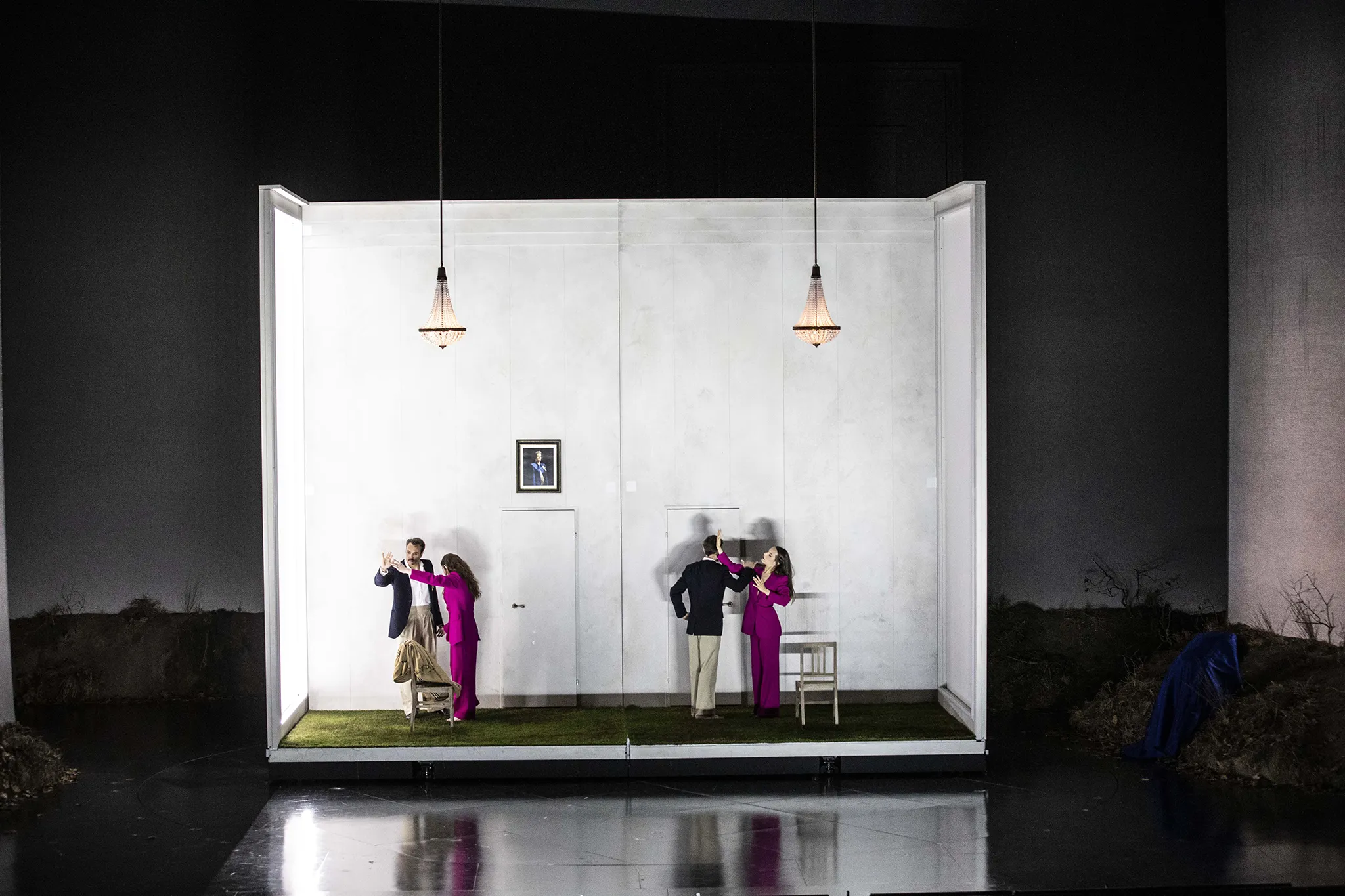
The Lyonnais audience gave this premiere a warm welcome, confirming that Escaich has found a style able to attract audiences to lyrical creation.
Christian Merlin, Le Figaro
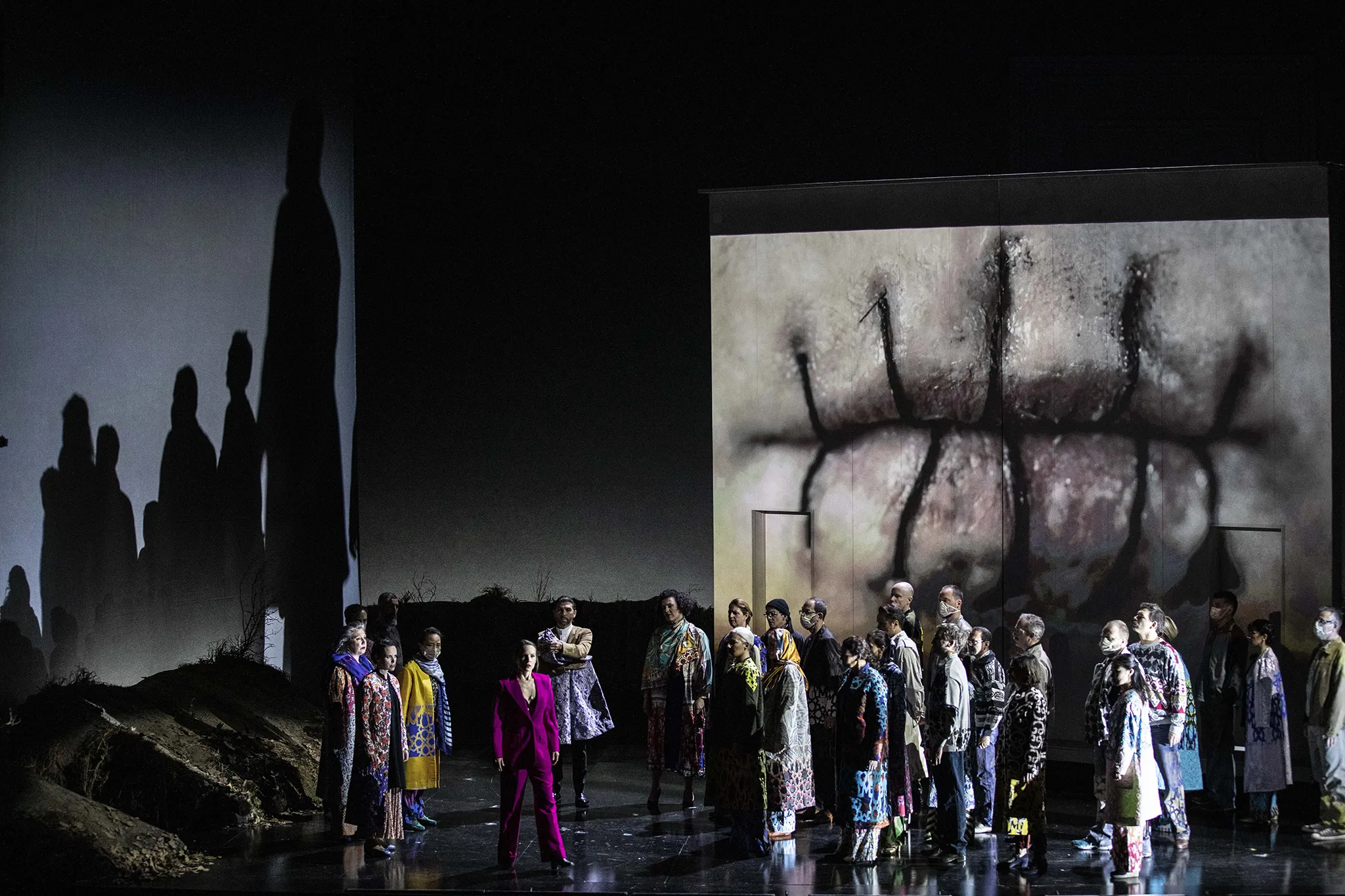
Richard Brunel’s staging immerses us in a “fairy tale” accentuated by the use of video by Yann Philippe, illustrating the work’s reflections on the role of the image.
Lyon capitale
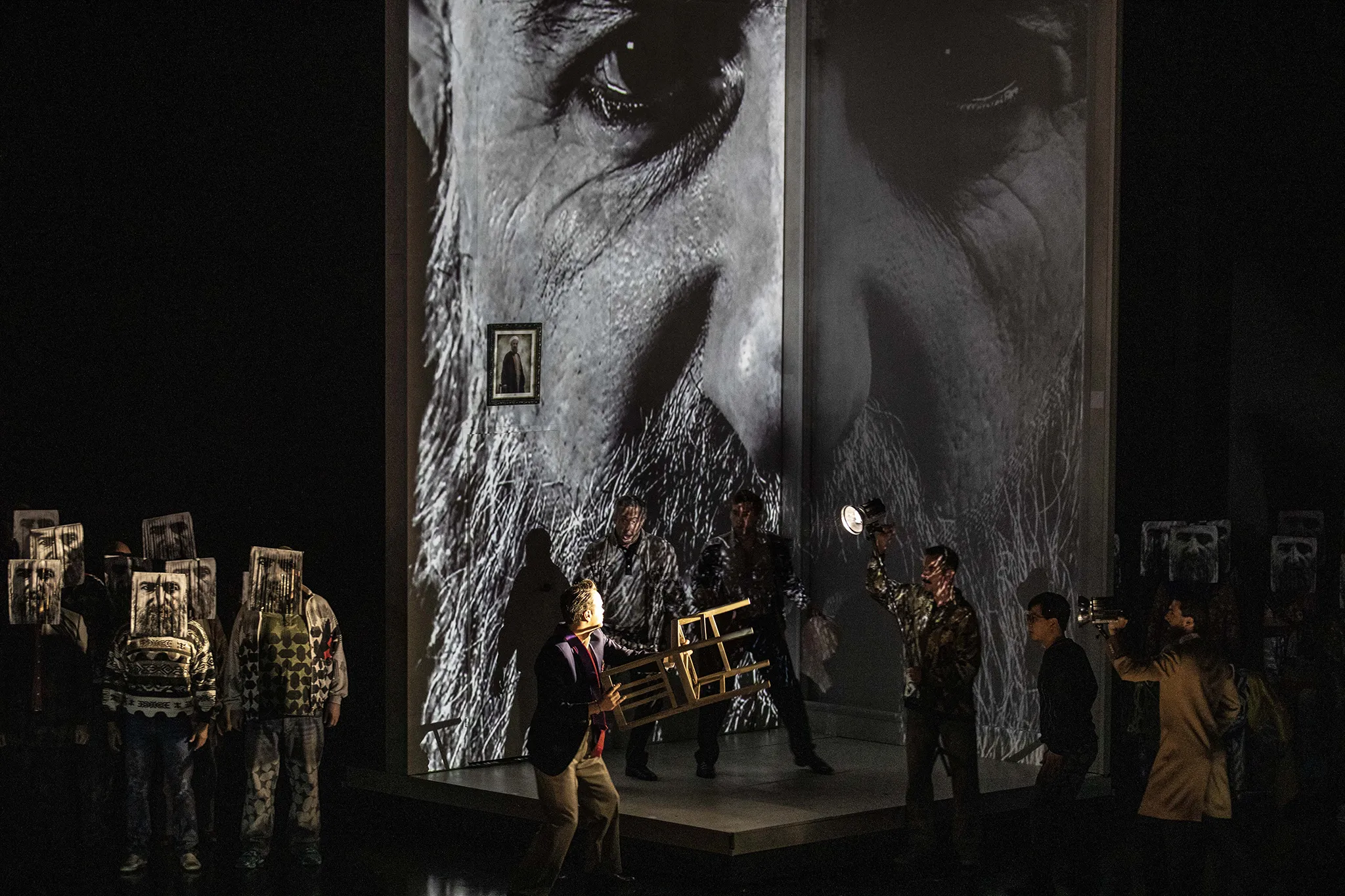
The staging (by opera house director Richard Brunel) opens with a powerful image of women with sewn mouths, removing the threads from their lips (in the image of the struggles for emancipation and the journey of the free Shirine).
Olyrix
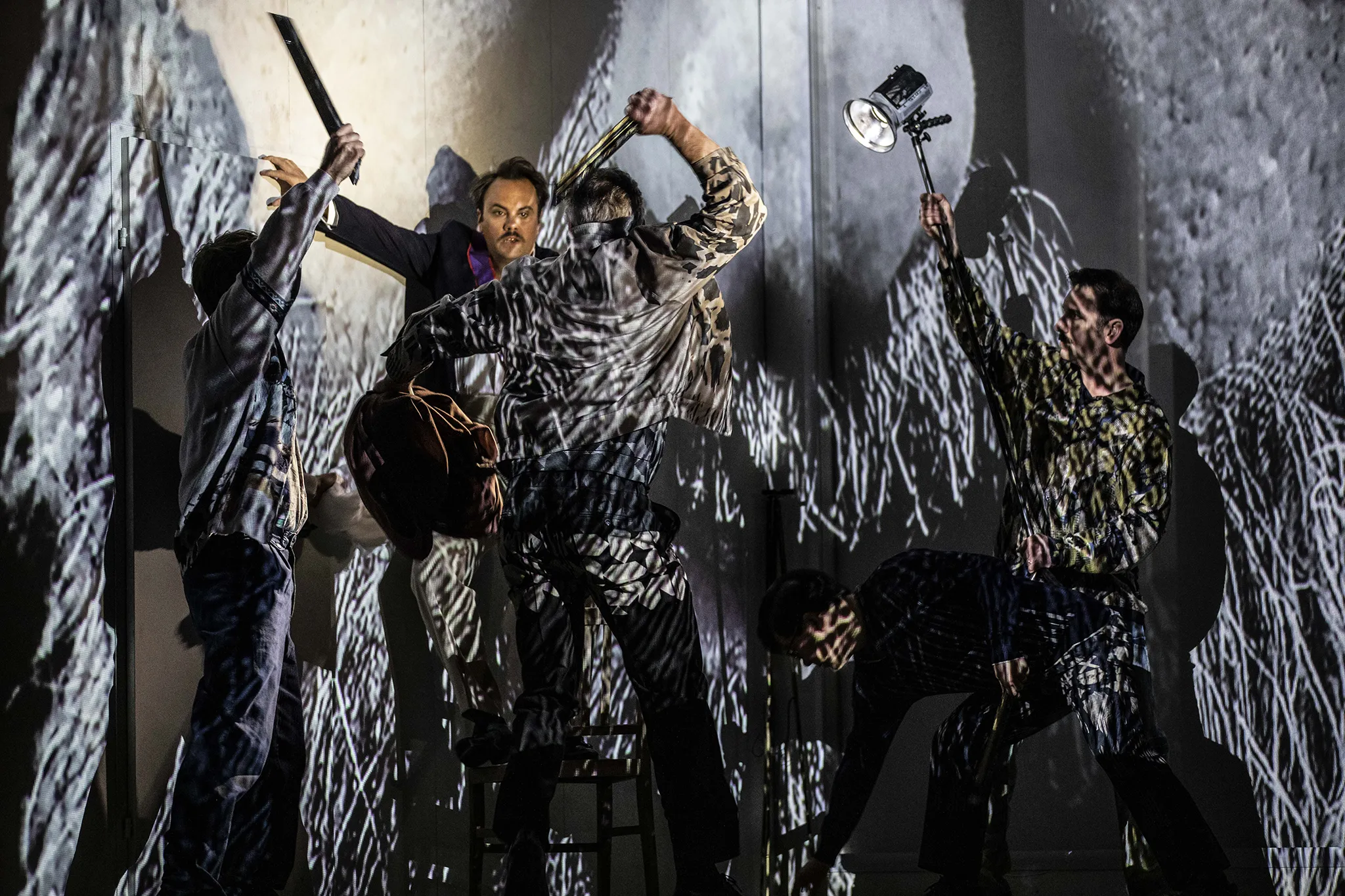
Richard Brunel’s staging is full of poetry, thanks in particular to subtle lighting and Étienne Pluss’s evocative set design.
Christian Merlin, Le Figaro
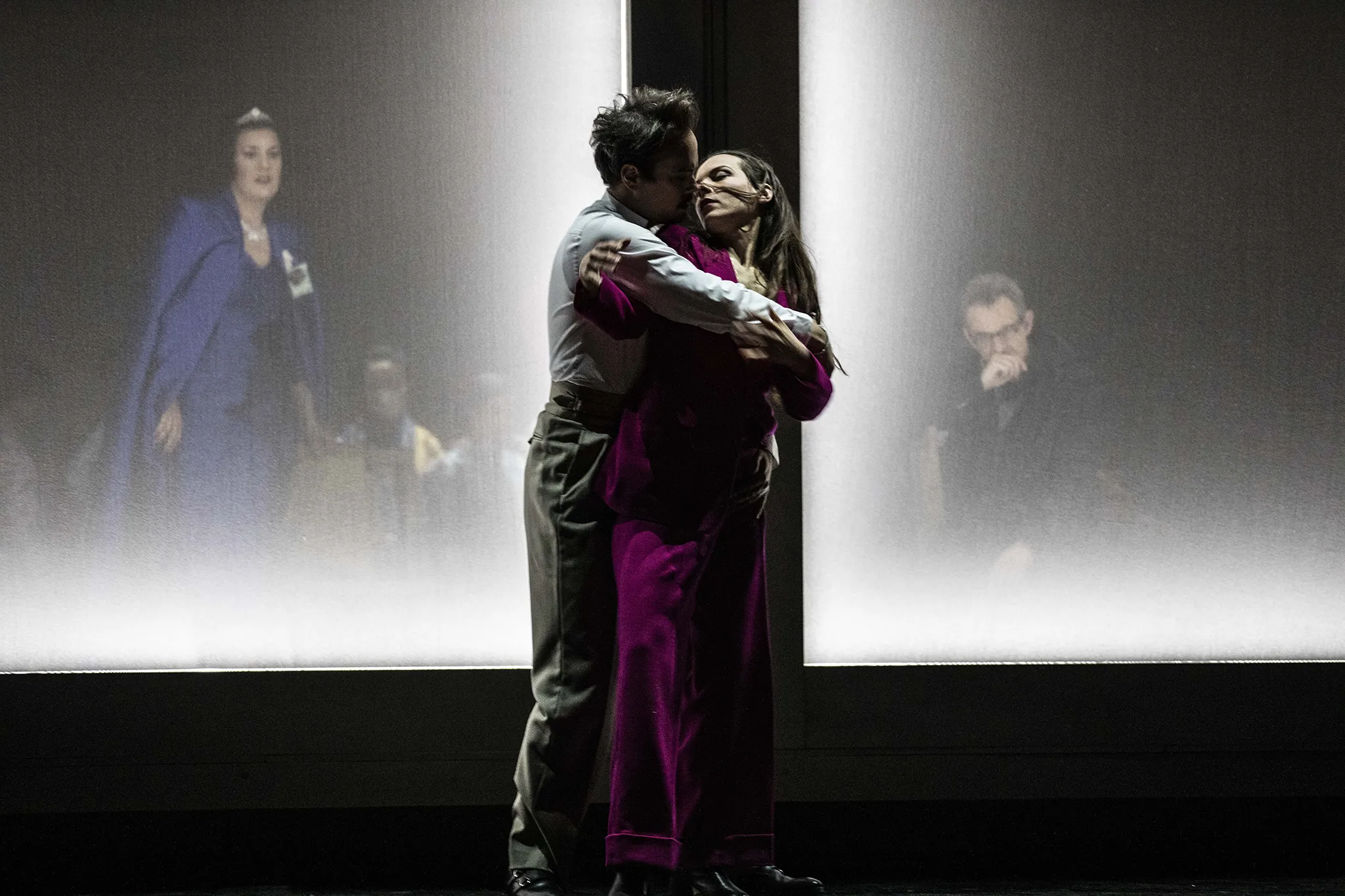
Richard Brunel’s staging responds to this relentless flow of musical ideas, woven with chases, ostinatos, repetitive cells and exotic colors, from quanun to ney, avoiding the kitsch of enchantment by alternating modernist video projections, monumental mountain scenery and a bare stage lit with neon or drop shadows.
Eric Dahan, Libération
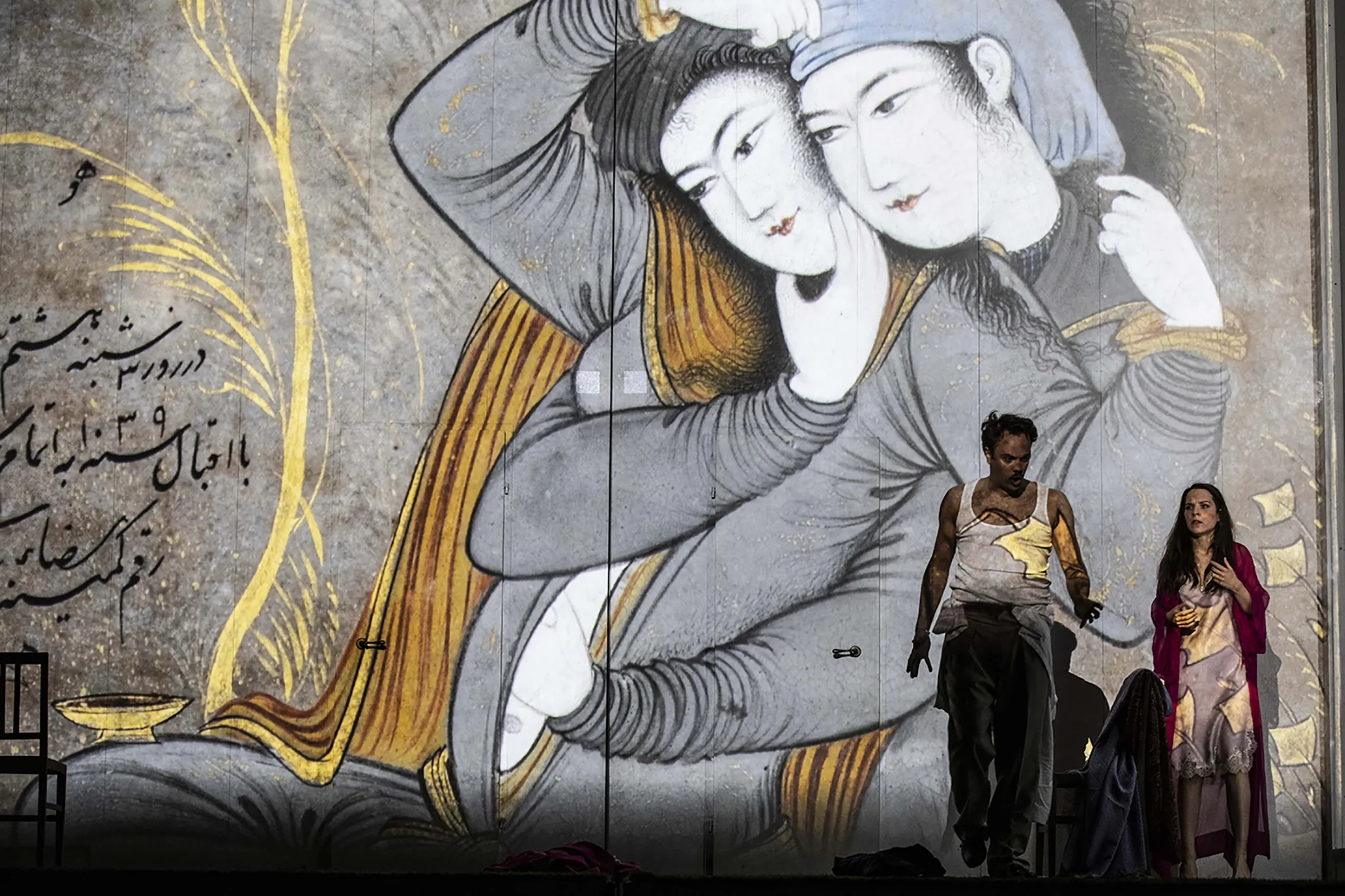
After the extraordinary success of Claude, based on a libretto by Robert Badinter, in 2013, Escaich leaves the world of prisons and the death penalty for female emancipation inspired by traditional Iranian music.
Luc Hernandez, Exit mag
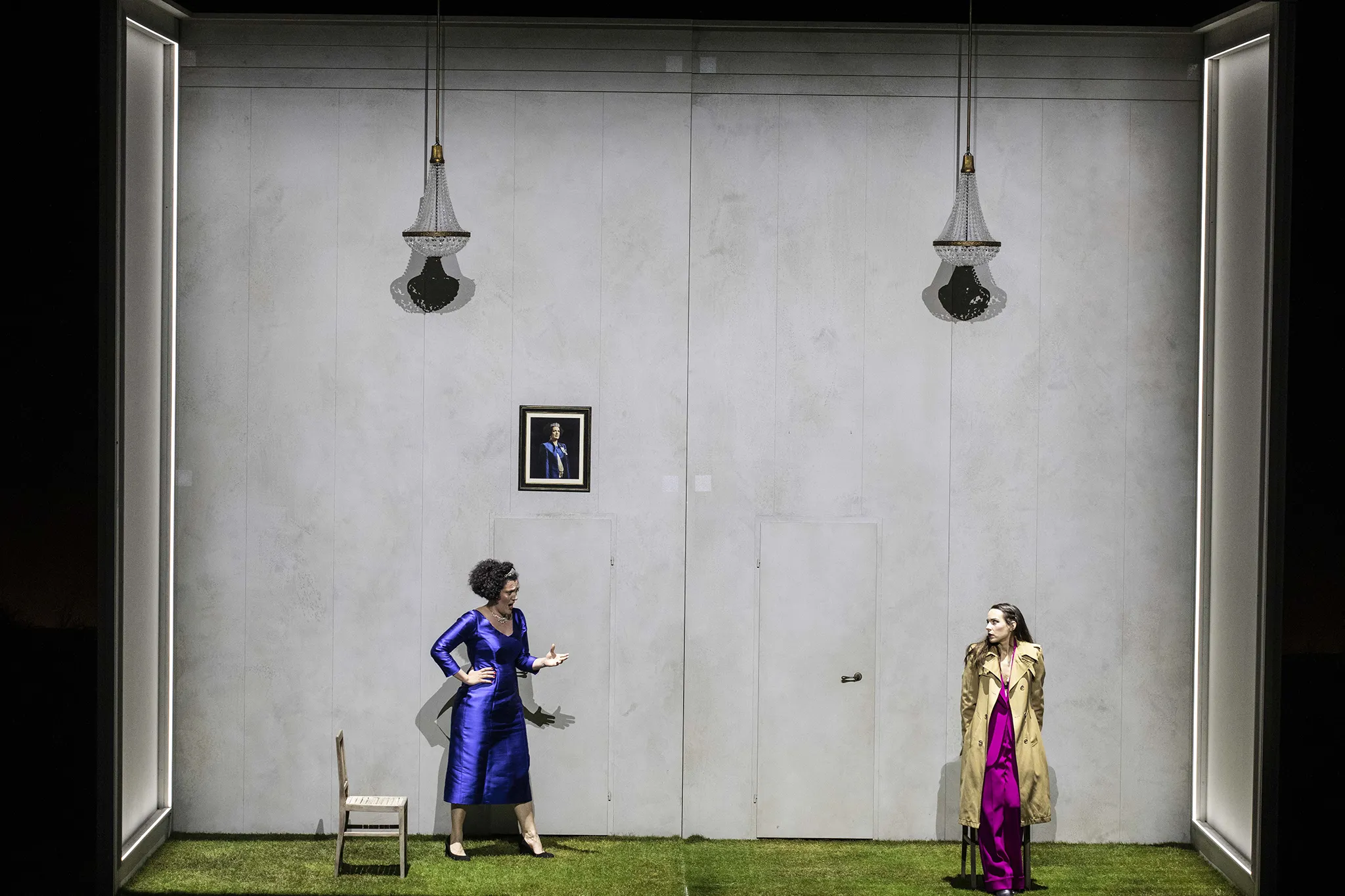
A tragic fairy tale directed by Richard Brunel, now director of the Opéra de Lyon following in the footsteps of Serge Dorny, who initiated the project, and born of the corpus of legends woven around Shirine and Khosrow, the last great Sassanid.
Jacqueline Thuilleux, Figaro Magazine
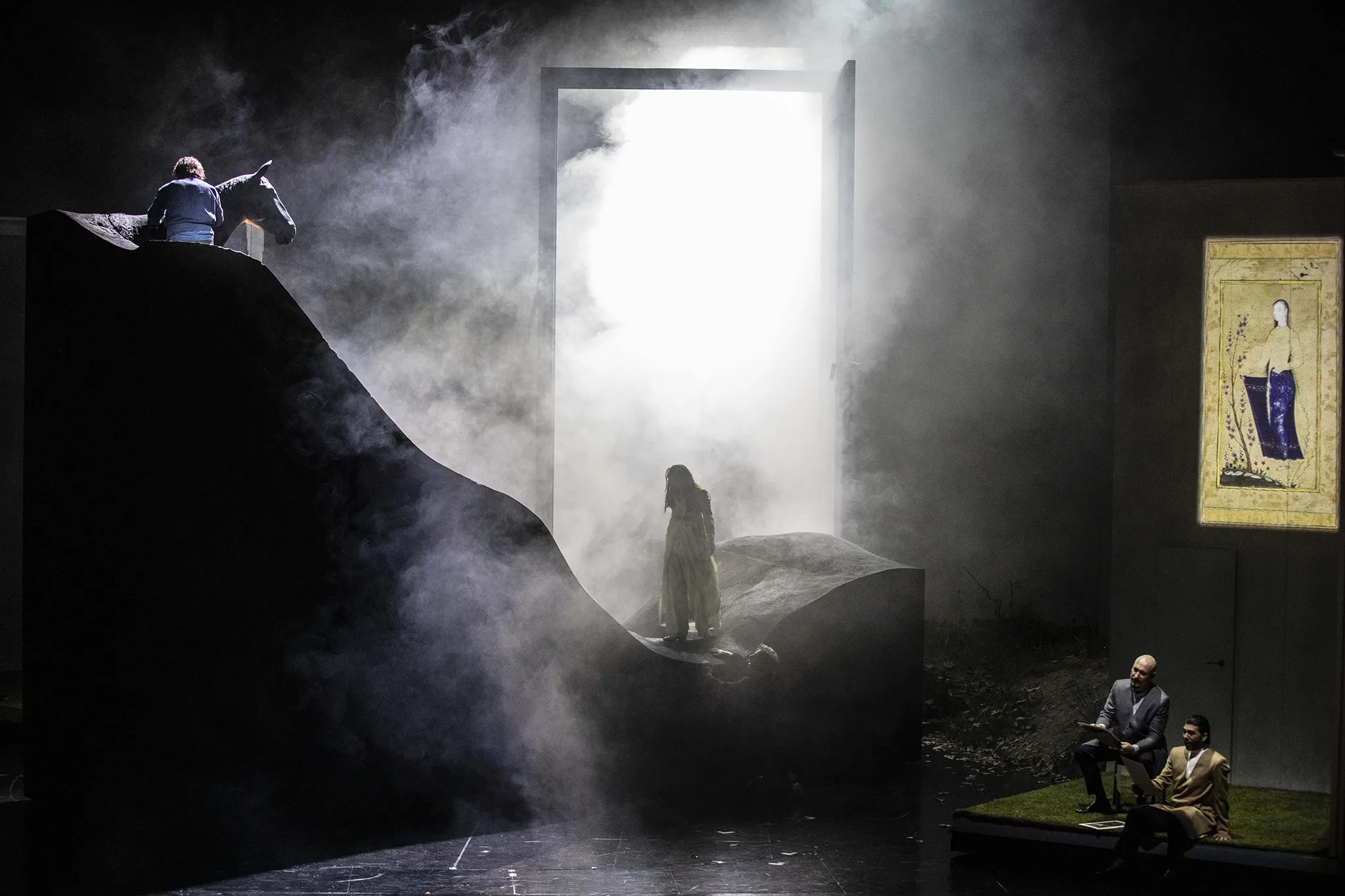
At once a reflection on women’s freedom and on the role of “image” and representation, the opera Shirine frees itself from crude orientalism and embraces modernity.
Guillaume Médioni, Lyon capitale
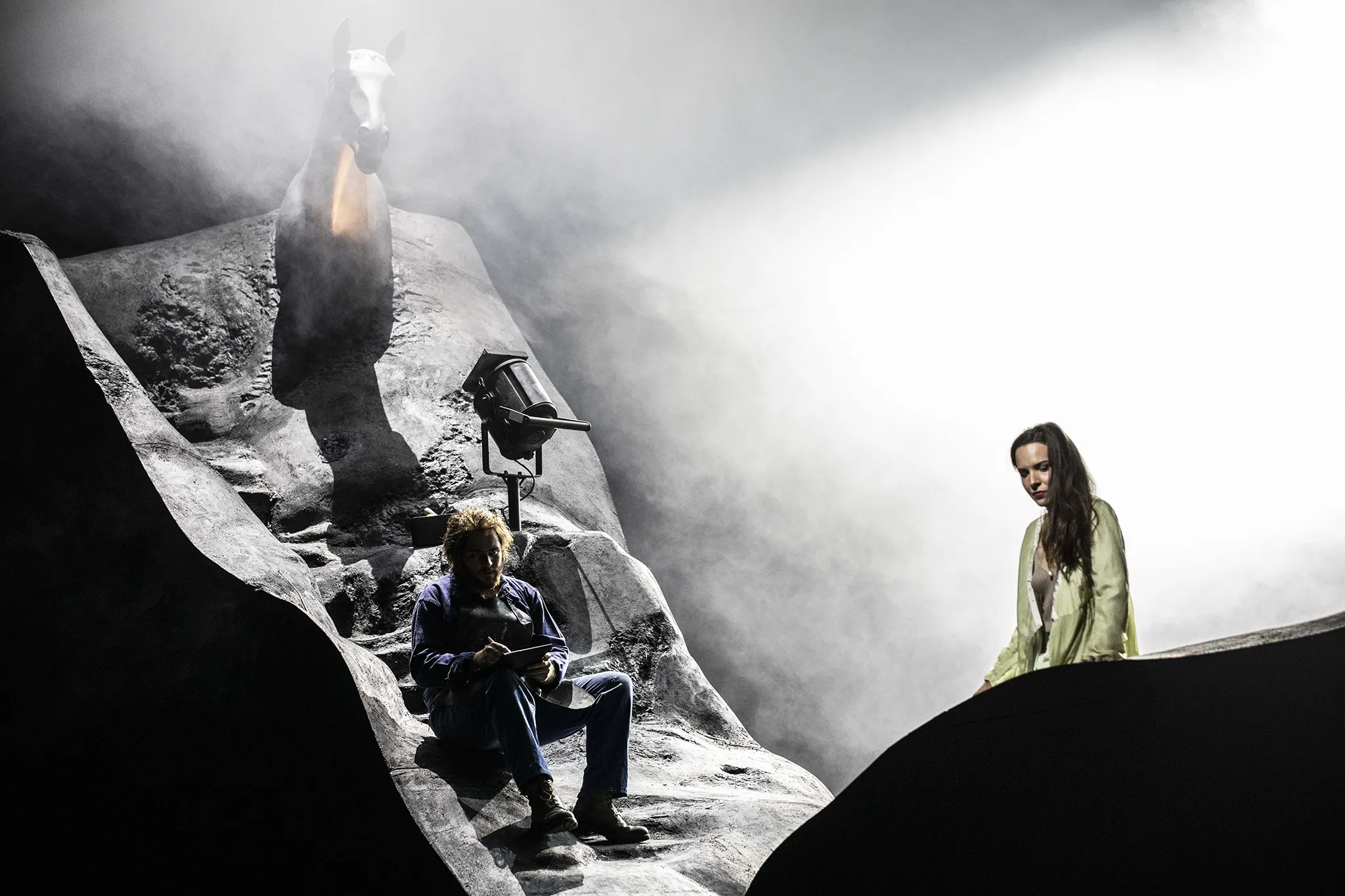
The battle is almost Shakespearean. Avoiding orientalist clichés, Richard Brunel’s staging plays on our fascination with images and selfies. Can we only fall in love with beautiful images?
Madame Figaro
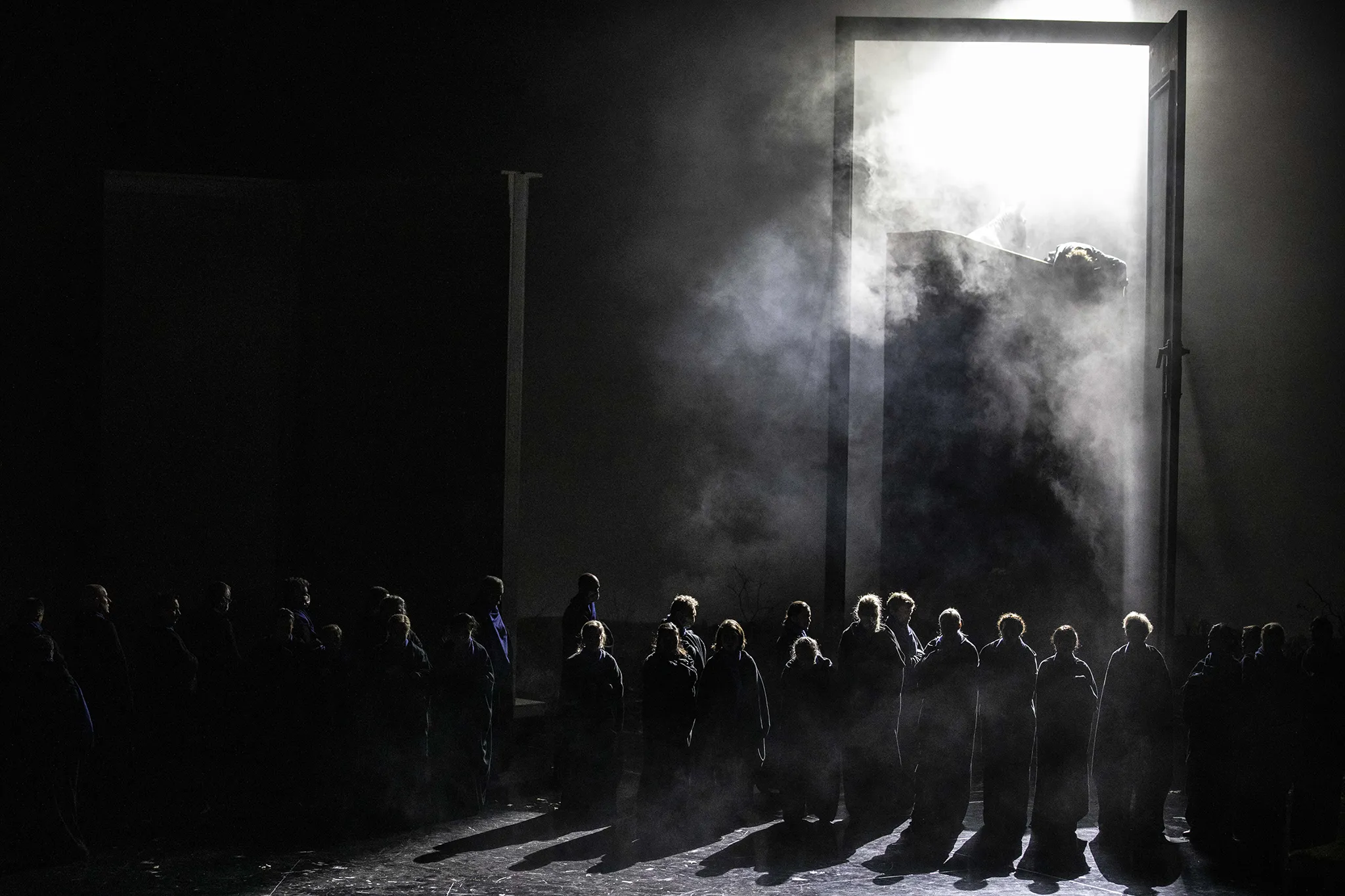
In Lyon, Thierry Escaich creates a superb opera on female emancipation, based on a 12th-century Persian poet. A wide range of influences serve up an exciting polyphony.
Eric Dahan, Libération
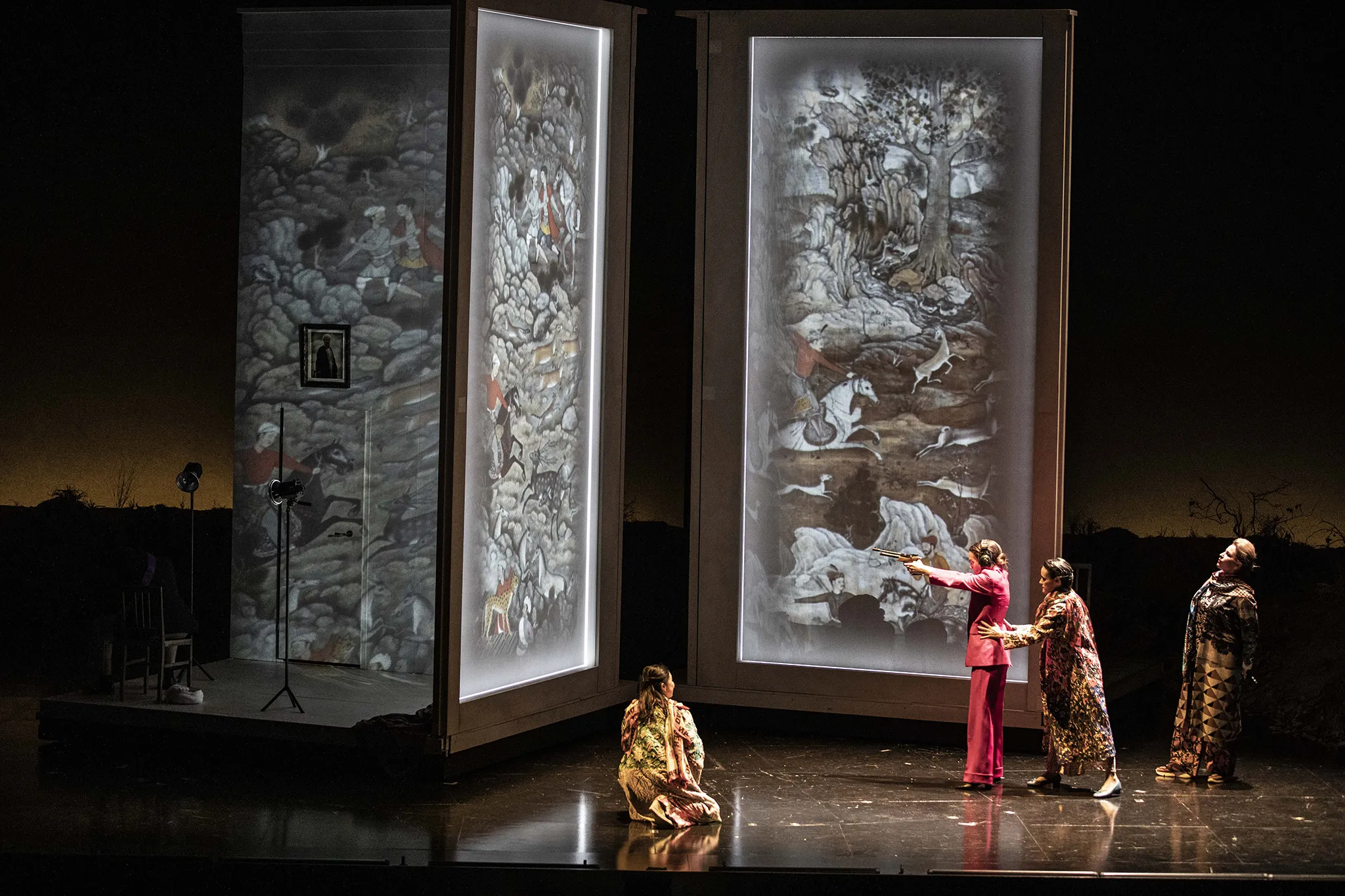
The Lyonnais audience gave this premiere a warm welcome, confirming that Escaich has found a style able to attract audiences to lyrical creation.
Christian Merlin, Le Figaro
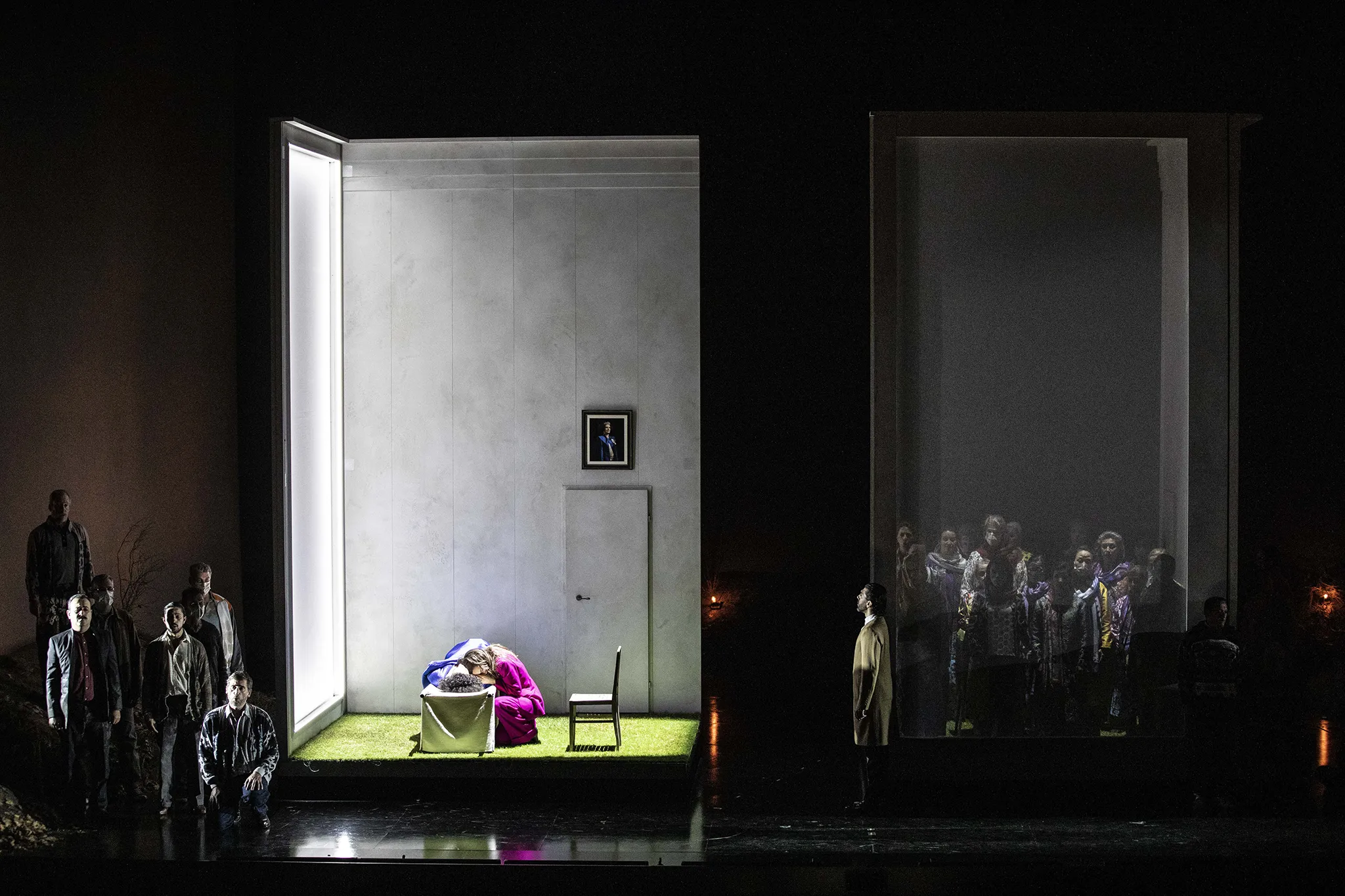
Richard Brunel’s staging immerses us in a “fairy tale” accentuated by the use of video by Yann Philippe, illustrating the work’s reflections on the role of the image.
Lyon capitale
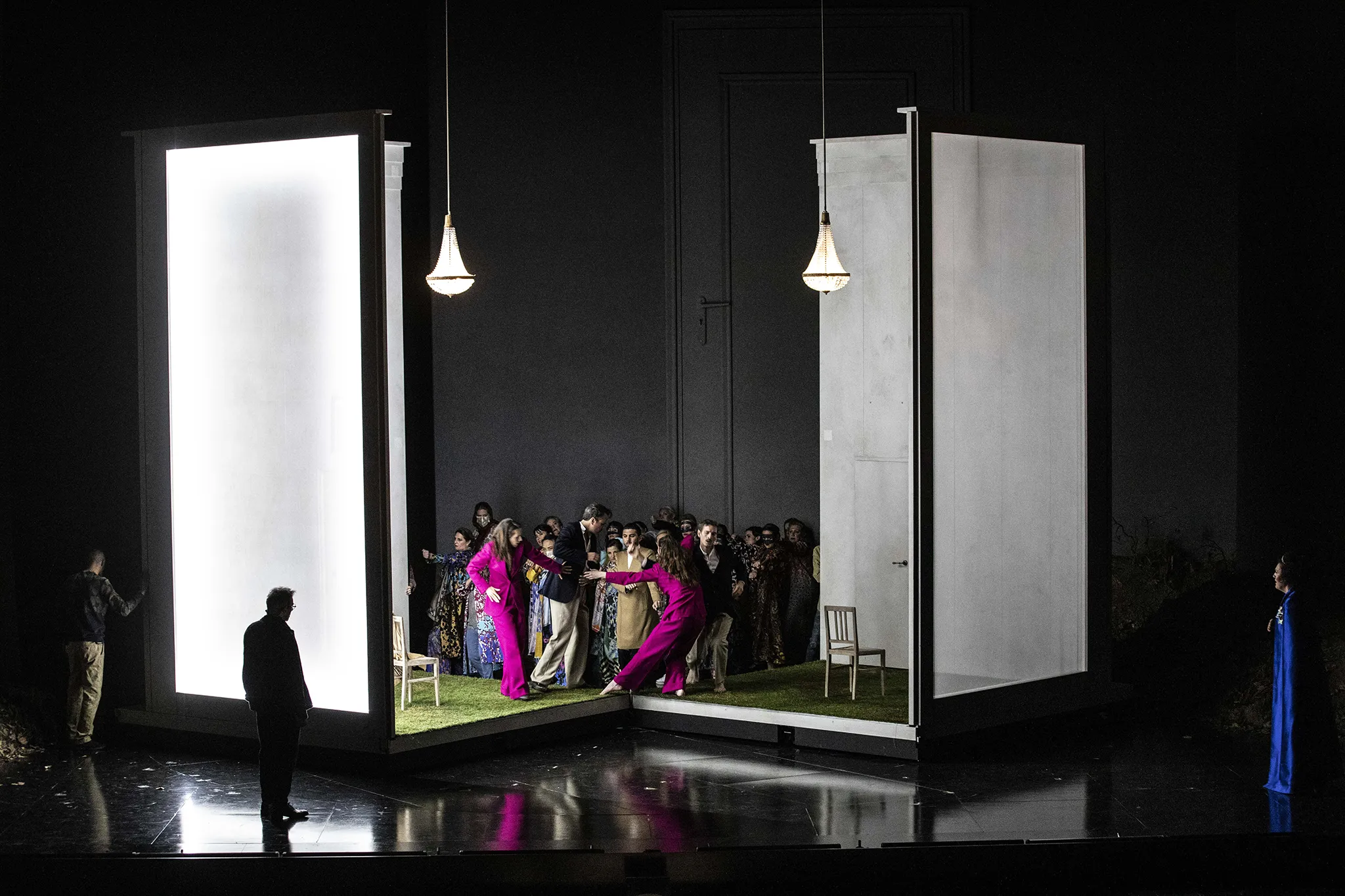
The staging (by opera house director Richard Brunel) opens with a powerful image of women with sewn mouths, removing the threads from their lips (in the image of the struggles for emancipation and the journey of the free Shirine).
Olyrix
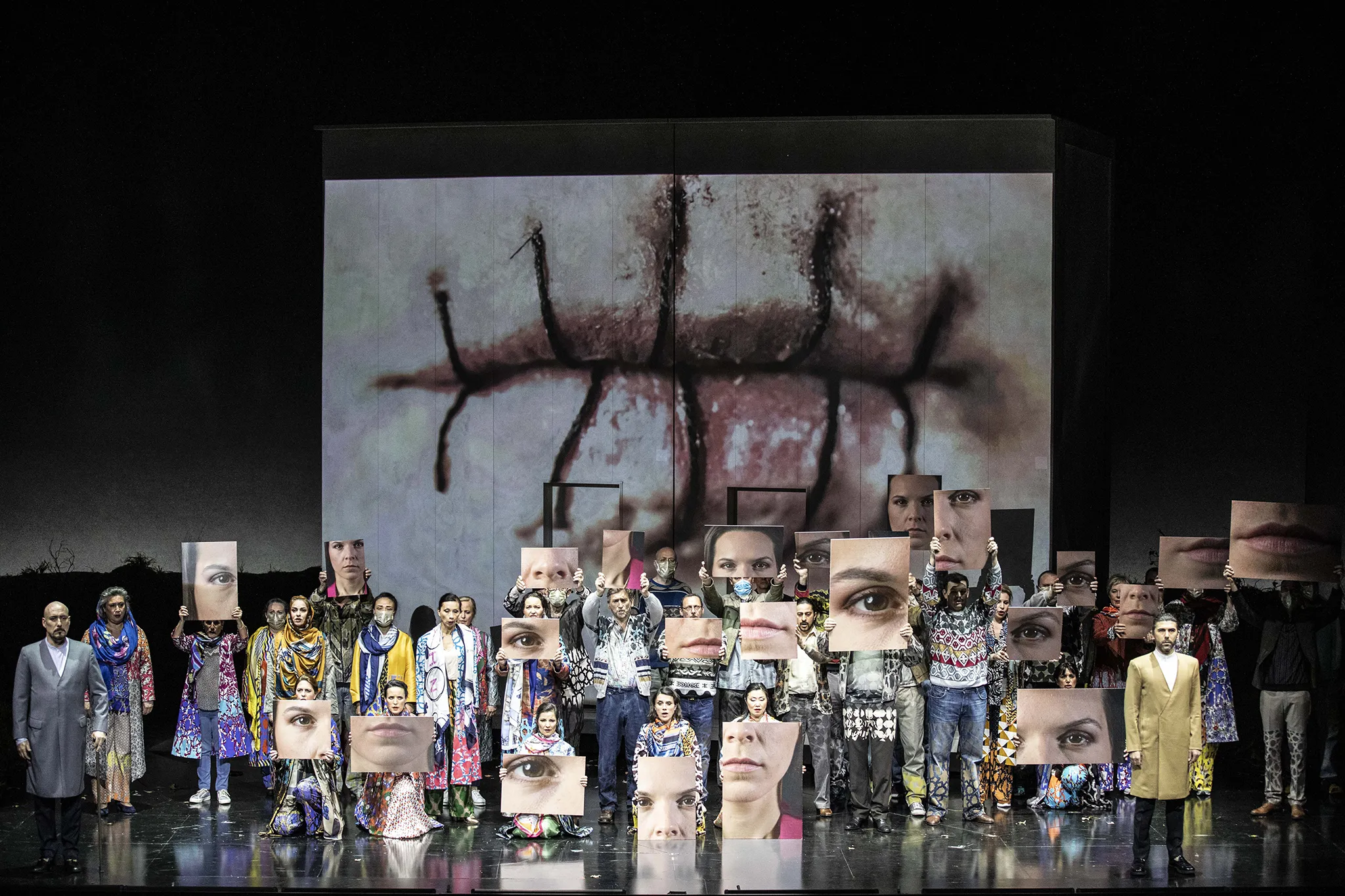
Shirine
Thierry Escaich
Opera in twelve tableaux
Libretto by Atiq Rahimi
World premiere
Commissioned by Opéra de Lyon
Musi director Franck Ollu
Director Richard Brunel
Set designer Etienne Pluss
Costume designer Wojciech Dziedic
Lighting designer Henning Streck
Vidéo designer Yann Philippe
Choreography Hervé Chaussard
Dramaturg Catherine Ailloud-Nicolas
Director assistant Ester Pieri
Chorus Master Denis Comtet
Cast
Jeanne Gérard
Julien Berh,
Jean-Sébastien Bou,
Majdouline Zerari,
Théophile Alexandre,
Laurent Alvaro,
Florent Karrer,
Stephen Mills,
Lyon Opera Orchestra and Chorus
Produced by Opéra de Lyon